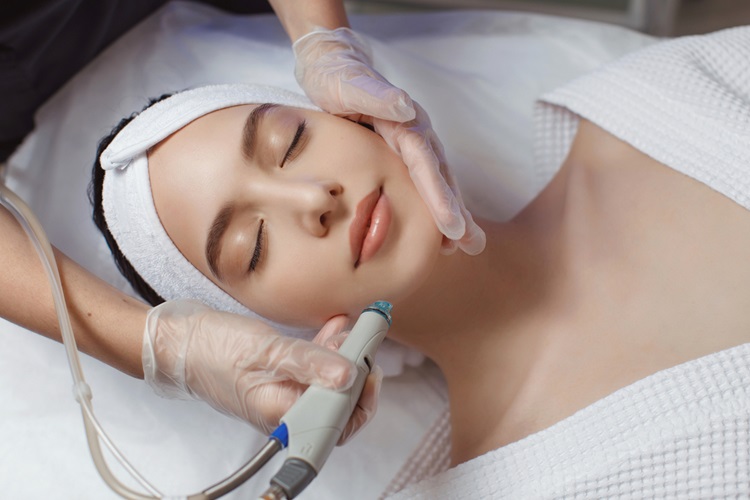Does Your Health Insurance Cover Dermatology Treatment?
Does Your Health Insurance Cover Dermatology Treatment?

Do you have a skin condition that requires immediate treatment or surgery? While dermatology is essential, the expenses incurred in its procedures can weigh heavily on your bank account. Hence, having a comprehensive insurance plan that covers dermatology is highly advisable. Read on for a quick, detailed rundown of everything you need to know about health insurance and dermatology.
The basics of dermatology coverage
Within dermatology, rectifying smaller skin issues like acne, scars, and rashes is just the tip of the iceberg. With an ever-increasing number of skin disorders in India, the need for more advanced medical care has taken precedence over general medication. This is why skin treatment insurance coverage is becoming as important as choosing the right treatment itself.
Dermatology coverage is generally included in most health insurance plans. However, the extent of the coverage may vary with each insurance provider. Skin-related hospitalisation is typically included in the coverage, but OPD (Out-Patient Department) consultation or daycare might not be covered in the plan.
Which dermatology treatments are covered by health insurance?
While many health insurance plans might differ from each other, most insurance providers usually offer coverage for:
• Skin cancer treatment and surgery
• Reconstructive surgery
• Skin viral diseases
• Skin allergies and fungal infection treatments
• Acne and poison ivy rashes
• Port wine stains
• Keloid scars
• Psoriasis
It is important to note that in cases of pre-existing diseases like skin cancer, there is a certain waiting period involved in the claim process. This duration typically ranges between one and five years. In such cases, it is advisable to have a critical illness insurance plan that can reduce the waiting period to about 90 days.
Which skin treatments are excluded?
While skin treatments in insurance coverage include all major procedures, some are not considered acute health problems and therefore are excluded from the coverage in most insurance policies. These might include:
• Cosmetic surgery
• Botox and fillers
• Non-accidental plastic surgery
• Tattoo removal
• Facial
• Chemical peels
• Microdermabrasion
Keep these key points in mind
Knowing what to look for and how to check for important details in your health insurance plan for dermatology can be an overwhelming experience. We’ve made it easy for you. Here are a few key steps to follow:
• Extent of coverage: Read your policy carefully to know how much coverage is included. The coverage provided for dermatology treatments varies across health insurance providers.
• Specific categories: Check to see if your policy includes coverage for dermatological care under specific categories, for example: critical illness insurance or cancer insurance.
• Waiting period: Get clarity on the waiting periods to receive your claim amount. While they can last up to 5 years, a reduction in this duration is possible.
• Alternatives for exclusions: Explore alternative financial programs for dermatology services not included in your plan if needed.
Can you appeal a coverage denial?
Yes, it is possible to appeal a coverage denial for dermatology in health insurance, but first, understand the reason for the rejection. Denials may be the result of non-coverage of the specific treatment, an expired policy, a fraudulent claim, or a lack of supporting documents.
Here’s a quick guide to help in this situation:
• Recheck your claim form to see if all the information provided is factually correct and up-to-date. Rectify the discrepancies and reapply.
• Approach an ombudsman, a government-appointed insurance professional dedicated to solving issues with claims and complaints. Note that this will be an out-of-court alternative.
• Keep a record (emails or messages) of all communication with your insurance provider. This will be used as proof to support your claim.
• Provide all the necessary documents for the claim and diligently follow up for updates.
Are there any alternatives for uncovered treatments?
While most providers offer comprehensive coverage for health insurance for skin conditions, you might find yourself needing treatment that is not part of this list. In this case, ensure you conduct thorough research on the specific treatment. There are more affordable options available for generally expensive treatments. Explore these alternatives and decide what suits you best financially.
You can also explore financial funding options to help you cover the expenses of your treatment. Speak to your dermatologist. They will typically have information and leads on this.
Many dermatologists use tele consultations, especially after the COVID-19 outbreak. Use these hybrid options, as they are considerably cheaper than traditional in-person visits.
Takeaway
With the rise in pollution, global warming, and unhealthy lifestyle choices, skin conditions are increasing by the day. It is vital to get the right dermatological treatment and to have comprehensive health insurance that effectively covers their costs. Keep the focus points mentioned in this blog in mind and ensure you research well before booking appointments and scheduling surgeries or treatments.
Disclaimer The above information is for illustrative purposes only. For more details, please refer to policy wordings and prospectus before concluding the sales.
RELATED ARTICLES
Albinism: Causes, Symptoms and Treatment
What Is Lepromin Skin Test? How Is It Performed?
Causes, Diagnosis, and Treatment of Psoriasis
Ayurveda and Its Many Benefits
Monkeypox: Prevention is the Best Cure for Children










 Health Insurance
Health Insurance  Travel Insurance
Travel Insurance  Car Insurance
Car Insurance  Cyber Insurance
Cyber Insurance  Critical Illness Insurance
Critical Illness Insurance
 Pet Insurance
Pet Insurance
 Bike/Two Wheeler Insurance
Bike/Two Wheeler Insurance  Home Insurance
Home Insurance  Third Party Vehicle Ins.
Third Party Vehicle Ins.  Tractor Insurance
Tractor Insurance  Goods Carrying Vehicle Ins.
Goods Carrying Vehicle Ins.  Passenger Carrying Vehicle Ins.
Passenger Carrying Vehicle Ins.  Compulsory Personal Accident Insurance
Compulsory Personal Accident Insurance  Travel Insurance
Travel Insurance  Rural
Rural 











